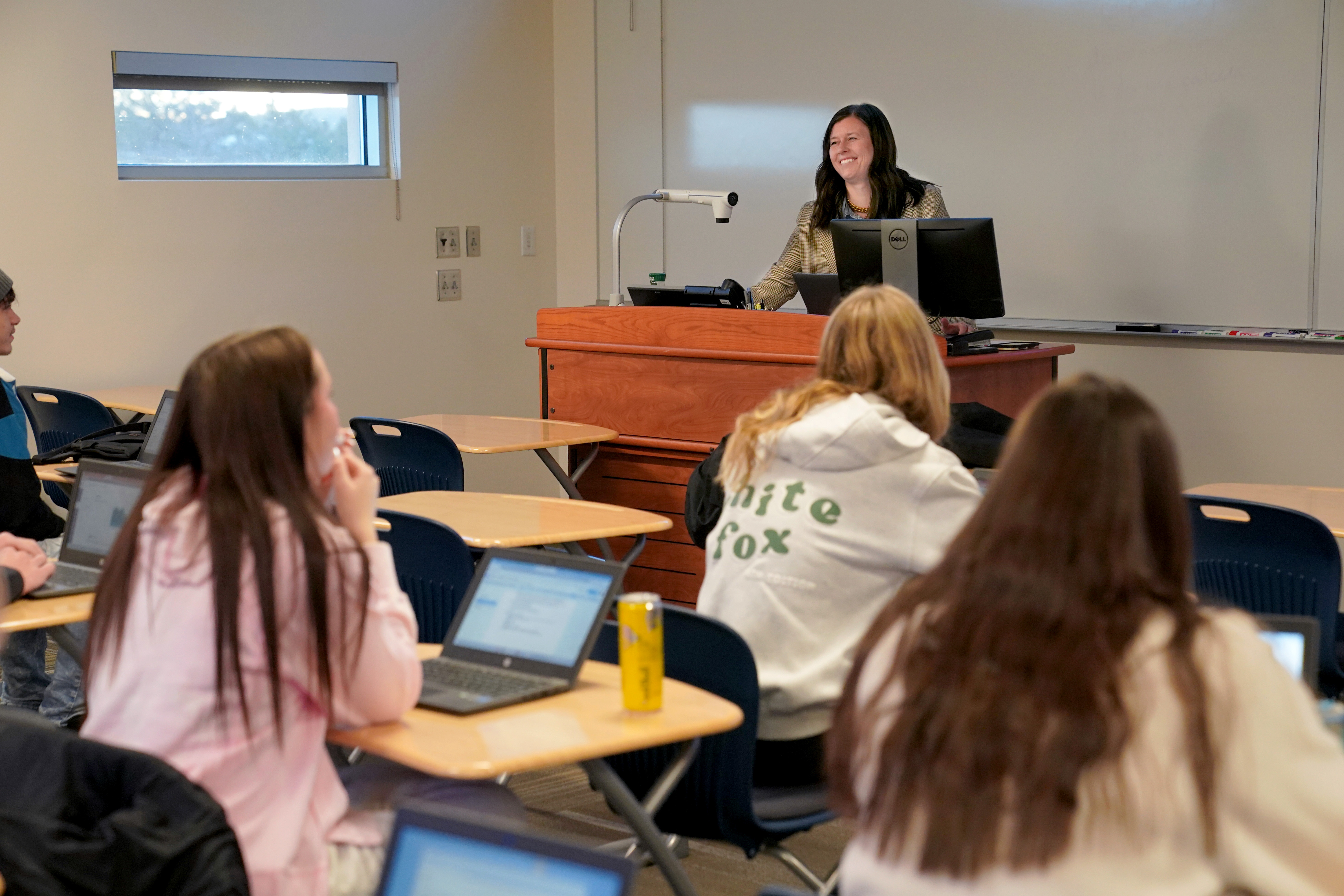Free Dual Credit at MPCC Opens Doors for High School Students Across the Region

Mid-Plains Community College’s decision to offer free tuition and fees for high school students taking dual credit and early entry courses has generated a surge in enrollment and a wave of positive changes across the region.
Starting with the 2025-26 academic year, MPCC began offering dual credit courses to high school students at no charge except applicable course fees and textbooks. The impact was immediate and dramatic. Enrollment jumped more than 20% in one year, with total student credit hours soaring by over 1,400.
“The cost barrier was a significant hurdle for many families,” said Kayla Thurman, Director of Early Entry and Program Development at MPCC. “Making these opportunities free has opened doors for a much broader range of students. We’re seeing growth in both general education courses and among students who may not have considered themselves college-bound before.”
Understanding Dual Credit vs. Early Entry
Dual credit programs allow high school students to take college-level courses, often right in their high school classroom, and earn both high school and college credit simultaneously. These courses are taught by instructors who meet college-level qualifications and are certified to teach dual credit.
Early entry, on the other hand, involves high school students enrolling in college classes (online or on campus) while still completing their diploma. Some even graduate high school with an associate degree already in hand.
“Both pathways give students an incredible head start on their education,” Thurman shared.
The Numbers Tell the Story
Since implementing free tuition, the college has seen record-breaking enrollment, with 45 more full-time and 77 more part-time students than the previous year, along with an increase of 1,431 credit hours.
According to Dr. Jody Tomanek, Vice President of Academic Affairs and North Platte Community College, the policy change removed a long-standing equity issue.
“You could have a class of 20 students in high school, half taking the class for dual credit because they could afford it, and the other half not getting credit even though they were getting the same instruction,” Dr. Tomanek explained. “That didn’t seem fair. I love that this is really for any student who wants to dedicate the time and energy to getting a jump on college classes.”
Real Impact in the Classroom
For high school administrators, teachers and counselors the response has been overwhelmingly positive.
Dual credit not only expands academic options for students but also enhances engagement, especially for those seeking a challenge or exploring career paths early.
“We are seeing more freshmen and sophomores taking advantage of the opportunity to earn college credit early in their high school career,” said Thurman. “This gives them time to build confidence, explore their interests and potentially complete a degree with MPCC.”
Many parents have shared that the program’s cost savings have made higher education feel more attainable.
“Once cost was removed the conversation shifted from ‘Can we afford this?’ to ‘Which class should I take first?’” Thurman shared.
More Than Just Free College
While saving thousands of dollars is a powerful incentive, the academic and social benefits of dual credit are equally impactful.
“It gives students a head start,” said Dr. Tomanek. “They get to learn what it is like to take a college class with the comfortability of an environment they are familiar with. For those that come to our campuses, they get to meet other people, see the dedicated faculty we have and take advantage of opportunities like any other college student”
The program has also helped some students clarify their career goals. “It might help a student decide they don’t want to major in a certain subject before they waste time and money in college figuring that out,” she added.
Support to Succeed
Recognizing that college-level coursework can be daunting, MPCC offers a robust support system for dual credit and early entry students.
“Academic advisors work closely with both students and high school counselors to make sure course selections are a good fit for each student’s goals,” Thurman shared.
Tutoring, writing assistance and online resources are also available.
“Our instructors and staff are very intentional about communication and support,” said Thurman. “We want students to focus on learning, not logistics.”
Looking Ahead
With momentum building, MPCC plans to continue growing its early entry program and strengthening partnerships with local schools.
As more students discover the value and accessibility of dual credit, the college expects to see continued increases in enrollment, confidence and student success.
“This initiative really levels the playing field,” said Dr. Tomanek. “It’s about opportunity, not just for those who can afford it, but for every student who wants to take that next step.”
MPCC encourages interested students and families to reach out for more information or to begin the registration process.
“This is one of the best investments a student can make in their future,” Thurman said. “We would love to help you begin your college journey!”

